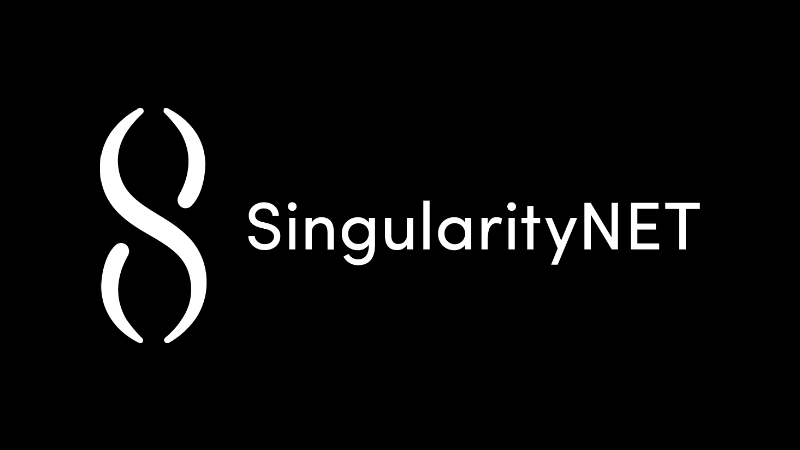We are proud to be the
Platinum sponsor
Cypherpunk
October 6, 2025 to October 31, 2025
Online
Prizes
1st Prize
5000 USDC
2nd Prize
4000 USDC
3rd Prize
3500 USDC
4th Prize
3000 USDC
5th Prize
2000 USDC
6th Prize
1500USDC
7th Prize
1000USDC
Fetch.ai is your gateway to the agentic economy. It provides a full ecosystem for building, deploying, and discovering AI Agents. With Fetch.ai, you can:
- Build agents using the uAgents framework.
- Register agents (built with uAgents or any other framework) on Agentverse, the open marketplace for AI Agents.
- Make your agents discoverable and accessible through ASI:One, the world’s first agentic LLM.
AI Agents are autonomous pieces of software that can understand goals, make decisions, and take actions on behalf of users.
The Three Pillars of the Fetch.ai Ecosystem
- uAgents – A Python library developed by Fetch.ai for building autonomous agents. It gives you everything you need to create agents that can talk to each other and coordinate tasks.
- Agentverse - The open marketplace for AI Agents. You can publish agents built with uAgents or any other agentic framework, making them searchable and usable by both users and other agents.
- ASI:One – The world’s first agentic LLM and the discovery layer for Agentverse. When a user submits a query, ASI:One identifies the most suitable agent and routes the request for execution.
Challenge statement
Build Autonomous AI Agents with the ASI Alliance
This is your opportunity to develop AI agents that don't just execute code—they perceive, reason, and act across decentralized systems. The ASI Alliance in partnership with Fetch.ai Innovation Lab, brings together world-class infrastructure from Fetch.ai and SingularityNET to support the next generation of modular, autonomous AI systems.
Use Fetch.ai's uAgents framework or your preferred agentic stack to build agents that can interpret natural language, make decisions, and trigger real-world actions. Deploy them to Agentverse, the ASI-wide registry and orchestration layer where agents connect, collaborate, and self-organize.
Enhance your agents with structured knowledge from SingularityNET's MeTTa Knowledge Graph. For agent discovery and human interaction, integrate the Chat Protocol to make your agents accessible through the ASI:One interface.
Whether you're building in healthcare, logistics, finance, education, or DeAI-native applications—this is your launchpad. Develop agents that talk to each other. That learn and adapt. That drive real outcomes across sectors.
The future of decentralized AI isn't siloed. It's composable, cross-chain, and powered by the ASI Alliance.
-
Code
- Share the link to your public GitHub repository to allow judges to access and test your project.
- Ensure your
README.mdfile includes key details about your agents, such as their name and address, for easy reference. - Mention any extra resources required to run your project and provide links to those resources.
- All agents must be categorized under Innovation Lab.
-
To achieve this, include the following badge in your agent’s
README.mdfile:
-
-
Video
- Include a demo video (3–5 minutes) demonstrating the agents you have built.
Tool Stack
Quick start example
This file can be run on any platform supporting Python, with the necessary install permissions. This example shows two agents communicating with each other using the uAgent python library.
Try it out on Agentverse ↗
from datetime import datetime
from uuid import uuid4
from uagents.setup import fund_agent_if_low
from uagents_core.contrib.protocols.chat import (
ChatAcknowledgement,
ChatMessage,
EndSessionContent,
StartSessionContent,
TextContent,
chat_protocol_spec,
)
agent = Agent()
# Initialize the chat protocol with the standard chat spec
chat_proto = Protocol(spec=chat_protocol_spec)
# Utility function to wrap plain text into a ChatMessage
def create_text_chat(text: str, end_session: bool = False) -> ChatMessage:
content = [TextContent(type="text", text=text)]
return ChatMessage(
timestamp=datetime.utcnow(),
msg_id=uuid4(),
content=content,
)
# Handle incoming chat messages
@chat_proto.on_message(ChatMessage)
async def handle_message(ctx: Context, sender: str, msg: ChatMessage):
ctx.logger.info(f"Received message from {sender}")
# Always send back an acknowledgement when a message is received
await ctx.send(sender, ChatAcknowledgement(timestamp=datetime.utcnow(), acknowledged_msg_id=msg.msg_id))
# Process each content item inside the chat message
for item in msg.content:
# Marks the start of a chat session
if isinstance(item, StartSessionContent):
ctx.logger.info(f"Session started with {sender}")
# Handles plain text messages (from another agent or ASI:One)
elif isinstance(item, TextContent):
ctx.logger.info(f"Text message from {sender}: {item.text}")
#Add your logic
# Example: respond with a message describing the result of a completed task
response_message = create_text_chat("Hello from Agent")
await ctx.send(sender, response_message)
# Marks the end of a chat session
elif isinstance(item, EndSessionContent):
ctx.logger.info(f"Session ended with {sender}")
# Catches anything unexpected
else:
ctx.logger.info(f"Received unexpected content type from {sender}")
# Handle acknowledgements for messages this agent has sent out
@chat_proto.on_message(ChatAcknowledgement)
async def handle_acknowledgement(ctx: Context, sender: str, msg: ChatAcknowledgement):
ctx.logger.info(f"Received acknowledgement from {sender} for message {msg.acknowledged_msg_id}")
# Include the chat protocol and publish the manifest to Agentverse
agent.include(chat_proto, publish_manifest=True)
if __name__ == "__main__":
agent.run()
Important links
Fetch.ai Resources




Examples to get you started:
Judging Criteria
-
Functionality & Technical Implementation (25%)
- Does the agent system work as intended?
- Are the agents properly communicating and reasoning in real time?
-
Use of ASI Alliance Tech (20%)
- Are agents registered on Agentverse?
- Is the Chat Protocol live for ASI:One?
- Does your solution make use of uAgents and MeTTa Knowledge Graphs tools?
-
Innovation & Creativity (20%)
- How original or creative is the solution?
- Is it solving a problem in a new or unconventional way?
-
Real-World Impact & Usefulness (20%)
- Does the solution solve a meaningful problem?
- How useful would this be to an end user?
-
User Experience & Presentation (15%)
- Is the demo clear and well-structured?
- Is the user experience smooth and easy to follow?
- The solution should include comprehensive documentation, detailing the use and integration of each technology involved.
Prizes
1st Prize
5000 USDC
2nd Prize
4000 USDC
3rd Prize
3500 USDC
4th Prize
3000 USDC
5th Prize
2000 USDC
6th Prize
1500USDC
7th Prize
1000USDC
Judges

Sana Wajid
Chief Development Officer - Fetch.ai
Senior Vice President - Innovation Lab

Attila Bagoly
Chief AI Officer

Wendwossen Dufera
Machine Learning Engineer

Nahom Senay
Machine Learning Engineer
Mentors

Abhi Gangani
Developer Advocate

Kshipra Dhame
Developer Advocate
Schedule
24:00 PT
WINNER ANNOUNCEMENT


